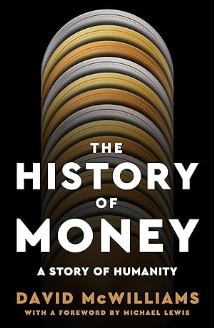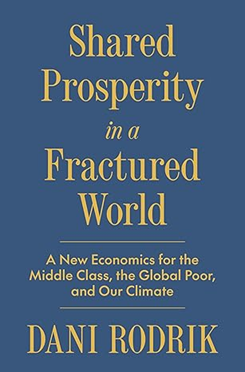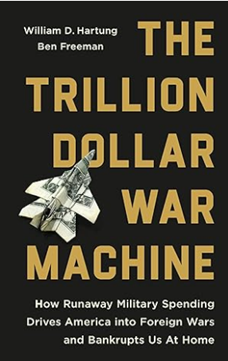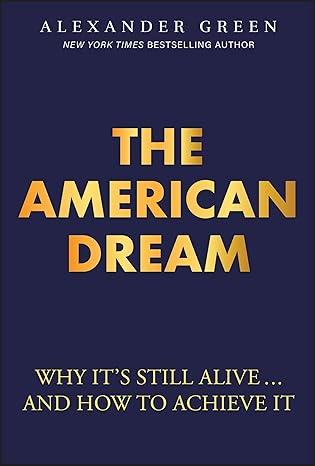 ● The History of Money: A Story of Humanity
● The History of Money: A Story of Humanity
David McWilliams
Review via New York Post
Looking at various moments in history, McWilliams reveals an unsettling through-line: humans keep making the same mistakes with money because money’s fundamental nature hasn’t changed. It’s still about trust, still about pricing time and risk, still capable of building empires or destroying them. Lenin and Hitler understood what Tiberius knew two millennia earlier.
“Money can be more powerful than religion, ideology, or armies,” McWilliams writes. “Mess with money and you mess with far more than the price system, inflation, and economics — you mess with people’s heads.”
 ● Shared Prosperity in a Fractured World: A New Economics for the Middle Class, the Global Poor, and Our Climate
● Shared Prosperity in a Fractured World: A New Economics for the Middle Class, the Global Poor, and Our Climate
Dani Rodrik
Review via The New Yorker
Rodrik believes there can be no return to the pre-Trump global system, which relied on one-size-fits-all trade rules enforced by transnational agencies such as the World Trade Organization. Far from mourning the demise of this system, Rodrik argues that it creates new space at the domestic level to address what he sees as the three defining economic challenges of our time: restoring the middle class in the U.S. and other Western countries; reducing poverty in countries that are still impoverished; and tackling climate change. “We spend so much time on the global economy and global agreements,” he explained to me. “But there is so much that can be done internally.”
 ● The Trillion Dollar War Machine: How Runaway Military Spending Drives America into Foreign Wars and Bankrupts Us at Home
● The Trillion Dollar War Machine: How Runaway Military Spending Drives America into Foreign Wars and Bankrupts Us at Home
William D Hartung and Ben Freeman
Interview with co-author Hartung via Democracy Now!
Democracy Now! speaks to William Hartung about his new book “The Trillion Dollar War Machine” and who profits from the United States’ runaway military spending that fuels foreign wars. Hartung says that U.S. policy is “based on profit” and calls for a rethinking of our foreign entanglements. “We haven’t won a war in this century. We’ve caused immense harm. We’ve spent $8 trillion,” he says.
 ● The American Dream: Why It’s Still Alive… And How to Achieve It
● The American Dream: Why It’s Still Alive… And How to Achieve It
Alexander Green
Summary via publisher (Wiley)
Alexander Green extols America’s exceptionalism, underscoring its unmatched economic dominance, technological innovation, and cultural influence, and highlights the importance of American ideals and the nation’s capacity to provide upward mobility and prosperity to its citizens. He stresses that economic success in the U.S. is attainable through education, hard work, saving, and investing and provides an action plan for achieving financial independence, with information on maximizing income, reducing expenses, saving, and investing wisely.
Please note that the links to books above are affiliate links with Amazon.com and James Picerno (a.k.a. The Capital Spectator) earns money if you buy one of the titles listed. Also note that you will not pay extra for a book even though it generates revenue for The Capital Spectator. By purchasing books through this site, you provide support for The Capital Spectator’s free content. Thank you!